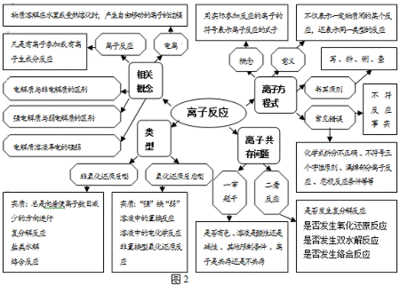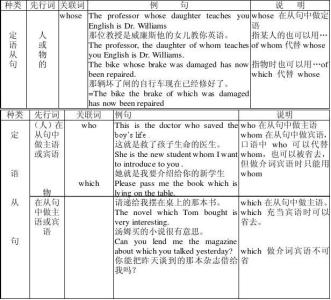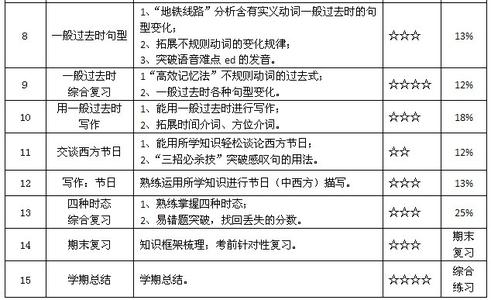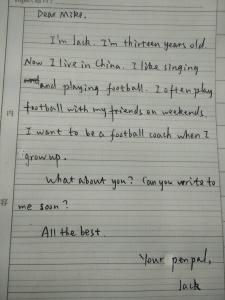现在式过去式否定式否定缩合式cancouldcannot (can not)/couldnotcan’t/ couldn’tmaymightmay not/ might notmustmustmust notmustn’twillwouldwill not/ wouldnotwon’t/ wouldn’tshallshouldshall not /
should notshan’t/ shouldn’tneedneedneed notneedn’tdaredareddare not/ darednotdaren’t / ought toought toought not tooughtn’t to
二. 情态动词现在式和过去式用法上的区别
Can I borrow your book? / Could I borrow your book?
He said I could borrow his book.
1. 时态
(现在式用于现在时态或将来时态,过去式用于过去时态。)
2. 语气
(用在现在时态,过去式比现在式更婉转、更客气。)
三.情态动词考什么
1.情态动词基本词义的辨析
2.情态动词表推测
3.情态动词表虚拟
4.情态动词的省略
四. 情态动词基本词义辨析
1. can /could
(1) 能力(ability) 包括本能、体能、智能、权力能、权利能、财力能、环境能等。
He can speak French, but can not speak English.
You can not travel first-class with a second-class ticket.
Can / Could you lend me $ 100?
He could speak English when he was a child.
比较 was able to (VS) could
was able to 表示过去有能力,而且做成功了。
The big hotel caught fire last night. Fortunately, all the peoplewere able to escape.
(2) 许可(permission) (相当于may)
--Can I come in?
--Yes, certainly.( Yes, of course./ Certainly / Of course.)
--Could I use your telephone?
--Yes, you can.( Yes, of course.)
(3) 强烈的感情色彩:惊异、怀疑、不相信等态度(主要用于否定句、疑问句或感叹句中)
Can this be an excuse for not giving them help?
How can/could you be so careless!
What can he mean?
No, no, this can’t be true.
(4) 客观可能性(possibility) “理论上的可能”、“当然可能”、“有时候可能”,并非说话者主观认为可能,即“并非猜测”。
One can hold his breath for 3 minutes, with practice.
Accident can happen to any drunken driver.
He can be very unreasonable.(= Sometimes he isunreasonable.)
(5)要求对方为自己做某事 (= Will you/ Would you)
Can/Could you please help me with this box?
(6)can/ could的惯用语
① can but= can only 只好
We can but (can only) do our best.
② cannot / can’t (help / choose) but do
=cannot / can’t help doing 禁不住、不得不
I cannot help but admire your decision.
③ cannot…too 再…也不为过; 越…越好
You cannot be too faithful to your duties.
2. may / might许可(Permission)
① 说话者向对方请求许可
② 主语被许可
--May / Might I borrow your car?
--Yes, of course. ( Yes, you may)
--May / Might I tell Sunny about it?
--I’d rather you didn’t .( I’m afraid not./ No, you mustn’t./No, you can’t.)
You may pay the bill either in person or by mail.
(2) 用在 “May + 主语 + do” 的结构里表示 “祈祷”, “祝福”
May you be happy!
May you enjoy yourself!
(3) 用在 “may (might) as well” 里表示温和的劝告或建议———类似 had better (主语“I”, 说话者温和地表示自己的意向。)
I may (might) as well take it with me.
You may as well begin at once.
3. must
(1) 必须(Necessity)
① 规定或指令
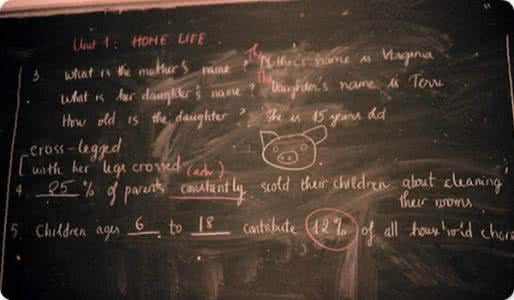
② 说话者的命令
③ 说话者的强烈意向、主张
You must have a passport if you want to travel abroad.
You must be here by ten o’clock. Otherwise you will bepunished.
I must be home by eight.
You must see the film; it’s wonderful.
注:
★Must I go with you?
Yes, you must./ No, you needn’t.( you don’t have to. )
You mustn’t play with fire.
★比较have to 必须、不得不 (别人的要求,客观的要求)
I don’t have enough money to take the bus, so I have to walkhome.
I have to go off now. My mom asked me to be back home beforedark.
You have to do the work of two men
(2) 表示主语的固执,偏要做他人不希望他做的事情。“偏要,偏得,偏偏”
Just as I was busiest, he must come and bother me.
Why must you always leave your dirty clothes in thebedroom.
4. will/ would
(1) 表意愿(用于第一人称) 主语是物的时候表示起作用。
I won’t argue with you.
I said I would do anything for him.
The drawer won’t shut.
My fountain pen wouldn’t write.
(2) 习惯或反复的动作 主语是物时,表示倾向性或客观事实。
You will always keep forgetting things.
John will fall asleep in class.
Oil will float on water.
(3) 和“you” 连用,表示请求 Could / Can you…?
Will you dine with me tomorrow, Lewis?
You will forgive me, won’t you?
Would you mind closing the door?
5. shall
(1) 表义务,用于二、三人称。
You shall do as you see me do.
▲ shall 常用语法律文字
“The interest shall be shared between you two.” the judgedeclared.
(2) 表许诺,威胁, 用于二、三人称。
You shall have my answer tomorrow.
You shan’t leave if you don’t finish your work.
(3) 征求对方的意见, 用于(一、三人称)
Shall I get you some fresh coffee?
What shall he do next?
6. should
(1) 主语的义务、责任,翻译成“应该 ”,表示说话人的劝告。
Children should be taught to respect their elders.
(2) 表示强烈的感情色彩,常用于以why,how开头的疑问句中(表示不满,抱怨),常常翻译成“竟然”。
How should I know?
I don’t see why we shouldn’t make friends.
7. ought to主语的义务、责任 。 翻译成“应该 ”。表示说话人的劝告。
You ought to obey your parents.
(语气:must>shall>ought to = should>may as well= might as well=had better)
8. need / dare
(1) 肯定句中用于实义动词, 疑问否定句中用于情态动词或实义动词。
He needs to escape.
He doesn’t need to / needn’t escape
Need we escape? / Do we need to escape?
She doesn’t dare to do / daren’t do anything.
(2) need 做情态动词没有形式变化
(3) dare做情态动词有现在式(dare) 和过去式(dared)
五. 情态动词表推测
1.可能性 小 大
mightmaycouldcanmust肯定√√××√否定√√√√×疑问××√√× 昨天晚上没下雨了,因为地面是是干的。
It couldn’t have rained last night, for the ground is dry.
咱们得快点,妈妈准在家等着我们呢。
Let’s hurry up. Mum must be waiting for us.
2. 情态动词表虚拟
should have done
could have done
might have done
needn’t have done
一个人都没来呢,我们本不必这么着急。
There is nobody here. We needn’t have been in such a burry.
3. 情态动词的省略
--Could I use your telephone? --Yes, you can.
--Ought I to hand in the work? --Yes, you ought to.
--Should he have handed in his homework? --Yes, he should have.
 爱华网
爱华网